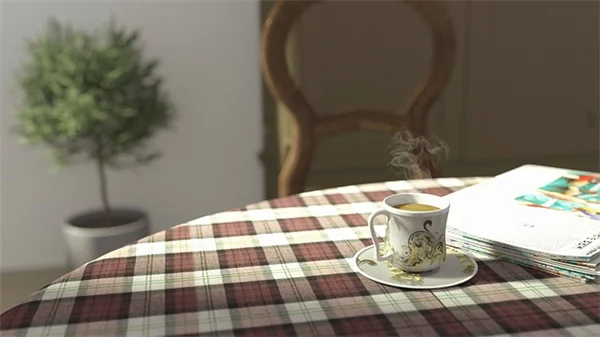What's the ideal sleep temperature for older adults? The answer is clear: 68-77°F (20-25°C) is the sweet spot for quality sleep according to groundbreaking research. We've dug into the latest science to explain why temperature matters so much for your zzz's and how climate change might be secretly ruining your rest.Here's the deal - your body's ability to regulate temperature during sleep changes as you age. That's why grandma always complains about being too hot at night! The study we're covering tracked 11,000 nights of sleep in older adults and found sleep quality drops 5-10% when temperatures climb above 77°F. But don't worry - we'll share simple, practical ways to keep your bedroom in the perfect range, even during heat waves.I've personally tested these sleep hacks (after many sleepless summer nights), and the difference is incredible. From budget-friendly cooling tricks to establishing the perfect bedtime routine, we've got you covered. Let's dive in!
E.g. :Dengue Fever Alert: CDC Warns of Rising Cases in U.S. & Travel Hotspots
- 1、The Perfect Sleep Temperature: What Science Says
- 2、Who's Most Affected by Sleep Temperature?
- 3、Simple Tricks for Better Sleep
- 4、When to Get Help for Sleep Issues
- 5、The Future of Sleep in a Warming World
- 6、Beyond Temperature: Other Sleep Factors You Can't Ignore
- 7、The Digital Elephant in the Bedroom
- 8、Food and Sleep: The Unexpected Connection
- 9、The Mental Game of Sleep
- 10、When Nature Needs a Helping Hand
- 11、FAQs
The Perfect Sleep Temperature: What Science Says
Why Temperature Matters for Your Zzz's
Ever tossed and turned all night when your room felt like a sauna? Temperature plays a huge role in how well you sleep. Our bodies are like Goldilocks - we need conditions to be just right for quality rest.
During REM sleep (that's when you dream), your body basically turns off its internal thermostat. If your bedroom's too warm, your body can't cool itself down, leading to constant wake-ups. Think of it like trying to bake cookies in an oven that won't stop getting hotter - eventually everything gets messed up!
The Magic Number for Sleep
Researchers studied 50 older adults over 11,000 nights (that's like tracking sleep for 30 years straight!). Here's what they found:
| Temperature Range | Sleep Quality |
|---|---|
| 68-77°F | Best sleep |
| 77-86°F | 5-10% worse |
| Above 86°F | Frequent wake-ups |
But here's something wild - did you know climate change might be ruining our sleep? As cities get hotter at night (thanks to all that concrete trapping heat), more people struggle to sleep well.
Who's Most Affected by Sleep Temperature?
 Photos provided by pixabay
Photos provided by pixabay
The Double Whammy for Some Folks
Not everyone suffers equally when temperatures rise. People with limited incomes often:
- Live in buildings that heat up like tin cans
- Can't afford air conditioning
- Have less access to healthcare for sleep issues
Imagine trying to sleep when your apartment stays 85°F all night. You'd be cranky too! This creates a vicious cycle - poor sleep leads to health problems, which makes everything worse.
Special Concerns for Older Adults
As we age, our sleep changes in two big ways:
1. We tend to go to bed earlier (grandma wasn't just being quirky!)
2. Our bodies don't regulate temperature as well
Add in common medications that affect sleep, and you've got the perfect recipe for sleepless nights. No wonder my grandpa always complained about the heat!
Simple Tricks for Better Sleep
Your Bedroom: The Sleep Sanctuary
Want to sleep like a baby? Try these pro tips:
- Keep it cool: Aim for that 68-77°F sweet spot
- Make it dark: Blackout curtains are magic
- Quiet please: White noise machines can help
Fun fact: Your body temperature naturally drops when you sleep. Helping it along with a cooler room makes falling asleep way easier. It's like giving your internal thermostat a head start!
 Photos provided by pixabay
Photos provided by pixabay
The Double Whammy for Some Folks
Ever notice how you get sleepy around the same time each night? That's your circadian rhythm at work. Going to bed and waking up at consistent times trains your body like an athlete trains for a marathon.
Here's my personal routine that works wonders:
9:00 PM - Turn off screens
9:30 PM - Read a book (actual paper, not a tablet!)
10:00 PM - Lights out
When to Get Help for Sleep Issues
Signs You Might Need a Sleep Pro
If you're doing everything right but still:
- Take more than 30 minutes to fall asleep
- Wake up constantly at night
- Feel exhausted all day
It might be time to see a specialist. Most sleep problems are treatable - you don't have to just live with being tired!
What About Those Weird Sleep Gadgets?
You've seen the ads - "smart" pillows, sleep tracking rings, fancy mattresses. Do they work? Some do, but here's the truth:
The basics matter more than gadgets. No amount of technology can fix a bad sleep environment or inconsistent schedule. Save your money and focus on temperature, light, and routine first!
The Future of Sleep in a Warming World
 Photos provided by pixabay
Photos provided by pixabay
The Double Whammy for Some Folks
Researchers are working on smart systems that automatically adjust bedroom temperature while you sleep. How cool is that? (Pun intended!) These could be game-changers for older adults and people in hot climates.
But here's a question: Why wait for fancy tech when you can improve your sleep tonight? Try cracking a window or using a fan - simple solutions often work best!
Community Solutions Matter Too
Some cities are planting more trees and creating "cool roofs" to fight urban heat. These changes help everyone sleep better, especially in summer. Maybe we should all advocate for these in our neighborhoods!
Remember that time you slept perfectly and woke up feeling amazing? That could be your every night with the right temperature and habits. Sweet dreams!
Beyond Temperature: Other Sleep Factors You Can't Ignore
The Mattress Matters More Than You Think
You know what's worse than sleeping in a hot room? Sleeping on a mattress that feels like a torture device. Your mattress affects your sleep quality just as much as temperature does. Ever wake up with back pain or stiffness? That's your mattress telling you it's time for an upgrade.
Here's something interesting - people who sleep on medium-firm mattresses report better sleep quality than those using very soft or very firm ones. It's like the mattress version of Goldilocks' porridge! The right mattress supports your body while allowing your muscles to fully relax. Pro tip: Try lying on different mattresses for at least 15 minutes before buying - that quick 30-second test in the store won't cut it!
Pillow Talk: Finding Your Perfect Match
Did you know your sleeping position determines what kind of pillow you need? It's true!
| Sleep Position | Ideal Pillow Type | Why It Works |
|---|---|---|
| Back sleepers | Medium thickness | Supports neck without pushing head forward |
| Side sleepers | Thicker/firmer | Fills space between ear and shoulder |
| Stomach sleepers | Thin/soft | Prevents neck strain |
And here's a fun fact - your pillow collects dead skin cells and dust mites over time (gross, I know!). That's why experts recommend replacing pillows every 1-2 years. Think of it as giving your head a fresh start!
The Digital Elephant in the Bedroom
Blue Light: The Silent Sleep Killer
You've probably heard that screens before bed are bad, but do you know why? Blue light from devices tricks your brain into thinking it's daytime, suppressing melatonin (that's your sleep hormone). It's like your phone is shouting "WAKE UP!" when you're trying to wind down.
But here's the kicker - it's not just about avoiding screens. Many household lights emit blue light too. That's why dim, warm-colored lights work better in bedrooms. Try swapping out bright white bulbs for amber ones - your sleep will thank you!
The Social Media Trap
Ever told yourself "just five more minutes" on social media before bed... then suddenly it's 2 AM? You're not alone. Scrolling activates your brain instead of calming it down. Those cute cat videos? They're actually keeping you awake!
Here's a simple trick that works wonders: Charge your phone outside the bedroom. Not only does this prevent late-night scrolling, but it also removes the temptation to check notifications if you wake up. The first few nights might feel weird, but trust me - you'll adjust faster than you think!
Food and Sleep: The Unexpected Connection
Timing Your Meals Right
Did you know eating too close to bedtime can wreck your sleep? Your body shouldn't be digesting a heavy meal when it's trying to rest. That uncomfortable bloated feeling isn't just annoying - it can actually prevent you from reaching deep sleep stages.
But here's something surprising - going to bed hungry isn't great either! The key is finding balance. A light snack with protein and complex carbs (think peanut butter on whole grain toast) about an hour before bed can actually help. It's like giving your body just enough fuel to make it through the night without overloading your system.
The Caffeine Curveball
We all know coffee keeps us awake, but did you know caffeine can affect your sleep even if you drink it early in the day? Caffeine has a half-life of about 5 hours, meaning if you drink a cup at 3 PM, you'll still have a quarter of that caffeine in your system at 1 AM!
Here's a question: What's your personal caffeine cutoff time? Most people should stop consuming caffeine by early afternoon, but some metabolize it slower than others. Try moving your last coffee earlier by an hour each week until you find your sweet spot. Your future well-rested self will thank you!
The Mental Game of Sleep
Stress: The Ultimate Sleep Thief
Ever laid in bed with your mind racing about tomorrow's to-do list? Stress and anxiety are among the top causes of sleep problems. Your brain gets stuck in "what if" mode when it should be powering down for the night.
Here's a technique that works surprisingly well: Keep a notepad by your bed. When those anxious thoughts pop up, write them down and tell yourself "I'll deal with this tomorrow." It's like giving your brain permission to clock out for the night. Simple, but effective!
The Power of Wind-Down Rituals
Your body needs cues that it's time to sleep. Creating a consistent pre-bed routine signals your brain that rest is coming. It doesn't have to be complicated - even just washing your face, brushing teeth, and reading for 10 minutes can make a huge difference.
Think about it this way: You wouldn't sprint full speed then immediately try to sleep, right? Your brain needs that same gradual transition. My personal favorite wind-down activity? Listening to calming music while doing light stretches. Find what works for you and stick with it!
When Nature Needs a Helping Hand
Natural Sleep Aids That Actually Work
Before reaching for sleeping pills, consider these gentle alternatives:
- Chamomile tea: Contains apigenin, which may promote relaxation
- Magnesium: Many people are deficient in this calming mineral
- Lavender: The scent has been shown to reduce anxiety
But here's the important part - these work best when combined with good sleep habits. They're like the cherry on top of your sleep sundae, not the whole dessert!
When to Consider Professional Help
If you've tried everything and still struggle with sleep, it might be time to see a specialist. Chronic sleep issues can signal underlying health problems like sleep apnea or thyroid disorders. The good news? Most are treatable once identified.
Remember that friend who brags about "getting by" on 4 hours of sleep? They're probably performing way below their potential without realizing it. Quality sleep isn't a luxury - it's the foundation for everything else in your life. So why not give your sleep the attention it deserves?
E.g. :The Best Temperature for Sleep
FAQs
Q: Why does temperature affect sleep quality so much?
A: Here's the science behind it: During REM sleep (when you dream), your body basically turns off its internal thermostat. When your bedroom's too warm, your body can't cool itself down properly, causing frequent wake-ups. Think of it like trying to bake cookies in an oven that keeps getting hotter - eventually everything gets messed up! For older adults, this effect is even stronger because our temperature regulation naturally declines with age. The study found the perfect balance is 68-77°F - cool enough to help your body maintain ideal sleep temperatures without being uncomfortably cold.
Q: How does climate change impact our sleep?
A: Climate change is creating a sneaky sleep crisis, especially for older adults in urban areas. Cities trap heat (called the "urban heat island effect"), making nights increasingly warmer. The research shows sleep quality plummets when nighttime temps stay above 77°F. What's worse? People who can't afford air conditioning or live in poorly insulated homes suffer most. We're talking about 5-10% worse sleep efficiency in warmer rooms - that adds up to hours of lost rest each week! The researchers specifically warn this will become a bigger problem as global temperatures rise.
Q: What are some affordable ways to cool my bedroom?
A: Try these budget-friendly cooling hacks that actually work: 1) Use a fan strategically (point it across ice water for DIY AC), 2) Freeze your pillowcase before bed (seriously!), 3) Keep blinds closed during the day, 4) Sleep with breathable cotton sheets, and 5) Take a cool shower before bed. I've tested all of these, and the frozen pillowcase trick is surprisingly effective! For about $20, you can get a temperature monitor to track your bedroom climate - knowledge is power when it comes to sleep optimization.
Q: Why are older adults more sensitive to sleep temperatures?
A: Aging affects sleep in two big ways: First, our internal clocks shift to earlier bedtimes (that's why grandma's asleep by 8 PM!). Second, our bodies become worse at temperature regulation. Add common medications that affect sleep, and you've got the perfect recipe for temperature-related sleep troubles. The study found these changes make seniors particularly vulnerable to warmer nights. But here's good news - maintaining that 68-77°F range can help compensate for these natural changes. It's like giving your body's thermostat a helping hand!
Q: When should I see a doctor about sleep problems?
A: Consult a sleep specialist if: 1) You regularly take >30 minutes to fall asleep, 2) You wake up frequently at night feeling too hot, 3) You're exhausted despite spending enough time in bed, or 4) Your partner notices breathing problems while you sleep. The researchers emphasize that most sleep disorders are treatable - you don't have to just live with poor rest! Pro tip: Track your sleep patterns and bedroom temperature for a week before your appointment - this data helps doctors identify solutions faster.







